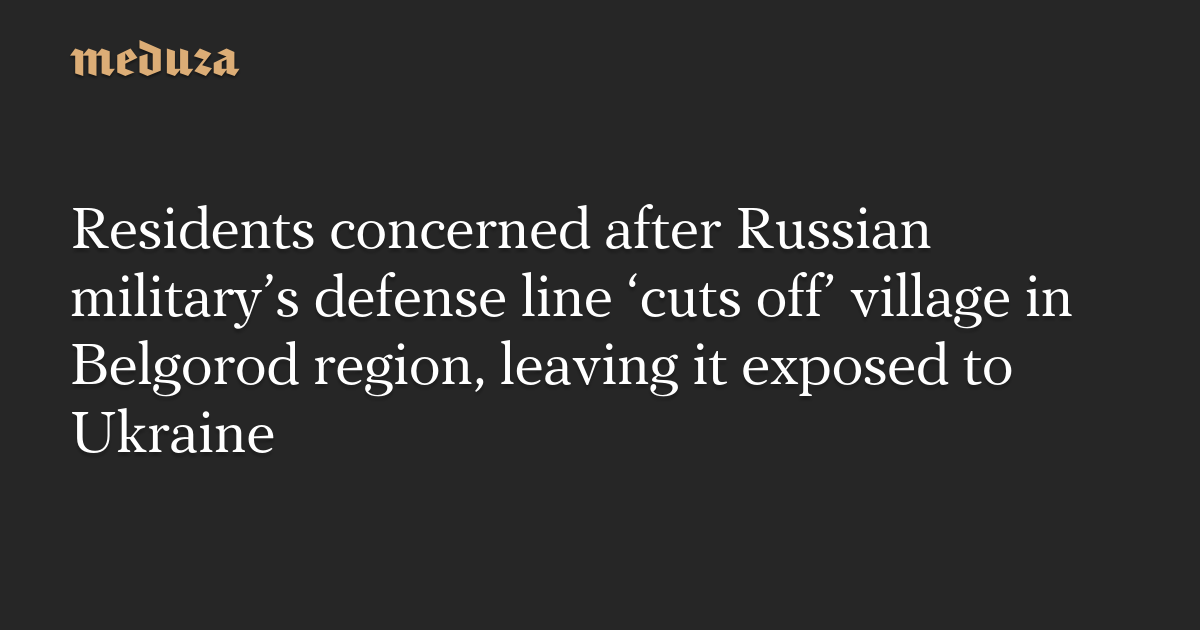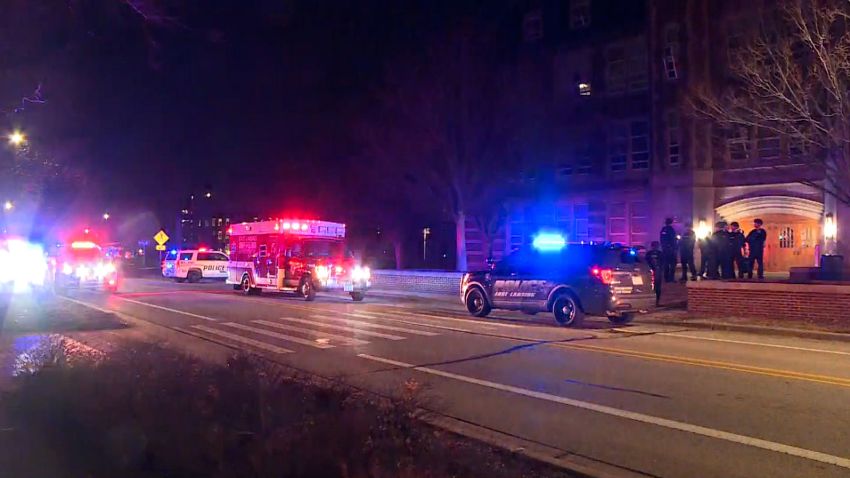The Russian Military's Moves: Why Europe Is Concerned

Table of Contents
Increased Military Presence and Exercises near European Borders
The noticeable increase in Russian military deployments and exercises near European borders is a primary driver of concern. This heightened military activity represents a significant shift in the regional security landscape.
Deployment of Troops and Equipment
Russia has significantly increased the deployment of troops and advanced weaponry to regions bordering Europe. This includes:
- Belarus: Large-scale deployments of troops and advanced missile systems, including Iskander short-range ballistic missiles, have taken place in Belarus, raising concerns about potential offensive capabilities directed towards neighboring NATO countries. Reports from NATO estimate troop numbers in the tens of thousands.
- Kaliningrad Oblast: This strategically important Russian exclave, situated between Poland and Lithuania, has seen a build-up of military assets, including advanced fighter jets and coastal defense systems. This enhances Russia's capacity to project power in the Baltic region.
- Western Military District: Reinforcements and increased activity have been observed within Russia's Western Military District, which borders several European countries, suggesting a readiness for potential military operations.
These deployments are backed by credible sources such as NATO assessments and reports from independent think tanks like the International Institute for Strategic Studies (IISS). The scale and sophistication of the equipment involved underscore the seriousness of the situation.
Frequency and Scale of Military Exercises
The frequency and scale of Russian military exercises near European borders have also dramatically increased. These exercises, often involving large numbers of troops and advanced weaponry, are seen as a clear demonstration of military might and a potential prelude to more aggressive actions.
- Zapad exercises: These large-scale exercises, held periodically, often involve simulated attacks on neighboring countries and are frequently criticized for their lack of transparency.
- Other exercises: Numerous smaller-scale exercises throughout the year further contribute to the overall sense of heightened military activity and contribute to the perception of a potential threat.
These maneuvers, while presented as routine training, are viewed by many as a show of force designed to intimidate neighboring countries and test their response capabilities. The exercises highlight potential vulnerabilities in European defense systems and raise concerns about the potential for escalation.
Aggressive Rhetoric and Information Warfare
Russia's aggressive rhetoric and sophisticated information warfare campaigns further exacerbate concerns regarding its military activity in Europe. This deliberate strategy aims to destabilize the region and undermine the unity of European nations.
Statements from Russian Officials
Statements from high-ranking Russian officials, often characterized by bellicose language and accusations against European nations, contribute to the tense atmosphere. These statements, often disseminated through state-controlled media, are carefully crafted to influence public opinion both domestically and internationally. Analyzing these statements reveals a consistent pattern of portraying Russia as a victim and Western nations as aggressors.
Cyberattacks and Disinformation Campaigns
Russia has been implicated in numerous cyberattacks targeting European infrastructure and institutions, aiming to disrupt critical services and sow discord. Disinformation campaigns, spread through social media and state-controlled outlets, seek to undermine trust in democratic institutions and create divisions within European societies. The impact of these actions extends beyond immediate disruption; they erode public trust, undermine political stability, and further contribute to the perception of a hostile Russia.
Violation of International Agreements and Treaties
Russia's disregard for international agreements and treaties has significantly eroded trust and increased security concerns across Europe. This pattern of behavior undermines the rules-based international order and creates an unpredictable security environment.
Examples of Treaty Violations
Several instances demonstrate Russia's disregard for international norms, including:
- INF Treaty withdrawal: Russia's withdrawal from the Intermediate-Range Nuclear Forces (INF) Treaty eliminated a key arms control agreement that limited the deployment of certain types of missiles.
- Open Skies Treaty withdrawal: Russia's withdrawal from the Open Skies Treaty, which allowed for unarmed observation flights over participating countries, further reduces transparency and trust.
These violations directly impact European security by removing constraints on Russian military capabilities and hindering efforts at transparency and verification.
Impact on Regional Stability and International Norms
The consistent pattern of violating international agreements erodes trust and cooperation within the international community. Russia's actions undermine established norms and the rules-based international order, creating a climate of uncertainty and increasing the risk of miscalculation and escalation. The disregard for international law sets a dangerous precedent and raises questions about the future of international cooperation on security matters.
Potential Threats to Specific European Countries
The increased Russian military activity poses specific threats to European countries based on their geographic proximity and strategic importance.
Assessment of Risks
Countries bordering Russia or strategically located within its sphere of influence face heightened risks:
- Baltic states: The Baltic states (Estonia, Latvia, and Lithuania) are particularly vulnerable due to their proximity to Russia and Kaliningrad.
- Poland: Poland, sharing a long border with Russia and Belarus, is another key country facing potential threats.
- Ukraine: The ongoing conflict in Ukraine highlights the direct military threat Russia poses to its neighbors.
Potential targets include critical infrastructure, military bases, and even civilian populations. The potential for hybrid warfare tactics, combining military actions with cyberattacks and disinformation campaigns, further complicates the situation.
Responses and Preparedness
European countries are responding to these threats through various measures:
- Military strengthening: Many European nations are increasing their military spending and modernizing their armed forces.
- Cybersecurity enhancements: Significant investments are being made in enhancing cybersecurity infrastructure to mitigate the risks of cyberattacks.
- NATO cooperation: Closer cooperation within NATO is crucial for bolstering collective defense capabilities.
While these efforts are underway, assessing their effectiveness requires continuous evaluation and adaptation to the evolving security landscape.
Conclusion
The escalating Russian military activity in Europe presents a serious challenge to regional stability and global security. The increased military presence, aggressive rhetoric, violations of international agreements, and potential threats to specific European countries all contribute to a growing climate of concern. Understanding the intricacies of these developments is crucial for effective response and mitigation. To stay informed about the evolving situation and its implications, continue following news and analysis on Russian military activity in Europe. Staying vigilant and informed is key to navigating this complex geopolitical landscape.

Featured Posts
-
 Porsche Pardavimai Lietuvoje 2024 M 33
Apr 29, 2025
Porsche Pardavimai Lietuvoje 2024 M 33
Apr 29, 2025 -
 Family Pleads For Help British Paralympian Missing In Las Vegas
Apr 29, 2025
Family Pleads For Help British Paralympian Missing In Las Vegas
Apr 29, 2025 -
 Ex Leoben Trainer Carsten Jancker Wo Geht Es Fuer Ihn Weiter
Apr 29, 2025
Ex Leoben Trainer Carsten Jancker Wo Geht Es Fuer Ihn Weiter
Apr 29, 2025 -
 Adhd Treatment The Importance Of Group Support And Community
Apr 29, 2025
Adhd Treatment The Importance Of Group Support And Community
Apr 29, 2025 -
 North Carolina University Campus Shooting Casualties Reported
Apr 29, 2025
North Carolina University Campus Shooting Casualties Reported
Apr 29, 2025
